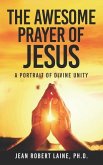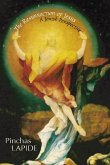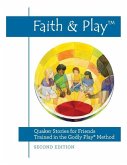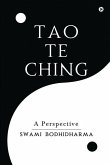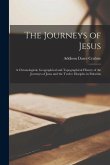In the summer of 1978, I took a summer course in Biblical Hebrew at Harvard Divinity School. One of the questions that interested me was the Hebrew name of God. This word was clearly a central part of Hebrew theology and practice for more than 2000 years. I wanted to try it as part of my daily spiritual practice. The first thing my instructor told me was that no one is sure how to pronounce that Name today. He said that while the King James Bible used the word Jehovah, this pronunciation was almost certainly wrong. Looking further, I found that a few hundred years before the time of Jesus the use of the Hebrew name of God became more and more restricted until only the high priest was allowed to use it. He did this only once a year, during the High Holy Days, while standing alone within the innermost room of the temple. How and why did this disappearing act occur? I looked further still into this question and I found an interesting statement by Jesus: The Bible has evidence in John 17:26 that Jesus took a different path concerning the name of God. He said "And I have declared unto them thy name, and will declare it: that the love wherewith thou hast loved me may be in them, and I in them." This quote clearly shows that Jesus, acting contrary to the trend of his time, not only knew how to pronounce this name of God and used the name himself, he taught this name of God to his disciples. What has happened since? Why was I not taught this name and its proper use in the catechism of my youth? With further research, I found more that provoked my curiosity. What is the explanation for the mysterious blessing of Jesus found in John 20:22? Here we read; "With that he breathed on them and said: 'Receive the Holy Spirit." Questions like these are answered to the best of my ability later in this book. I was raised as a traditional Christian. I was fully engaged from an early age with the sacraments, parochial school and, service as an altar boy. During my first year of college, I learned to meditate. A few months later, in the summer of 1971, I was transformed by what I can only call an irresistible force that delivered a peace that truly passes all understanding. The transformation of that spiritual breakthrough has never left me. Its significance only becomes more vivid as time passes. I have tried to follow up on that event and, along the way, met some fascinating people. I learned to teach meditation. My meditation teacher then sent me to India to teach and represent him there. Returning home, I worked with a courageous Civil Rights' activist, Robert Pritchard, who was locked in a struggle to turn back a resurgent Ku Klux Klan. Robert took the time to befriend me and counsel me. One day Robert took me aside and recommended I "take a second look at Jesus." I respected Robert and took his challenge to heart. To a great extent, this book is the result. Traditionally, Christianity has not recognized the validity of spirituality if it is not closely tied to its own doctrine. This attitude was simply not an option for me. The ongoing miracle of the surging life that was and is animating me could not be denied. Instead, I have closely reexamined contemporary and historic Christianity. I searched for evidence that my experience and the methods that triggered it were consistent with my Christian heritage. I have found what I was looking for. What I uncovered convinces me that Jesus intended we all partake in the ongoing miracle of life with an intimacy and intensity far exceeding contemporary Christian standards.
Hinweis: Dieser Artikel kann nur an eine deutsche Lieferadresse ausgeliefert werden.
Hinweis: Dieser Artikel kann nur an eine deutsche Lieferadresse ausgeliefert werden.


